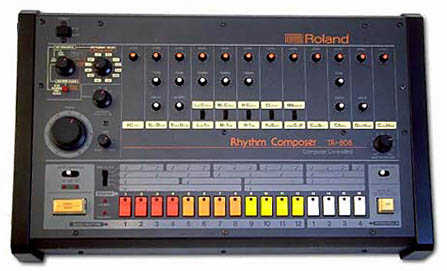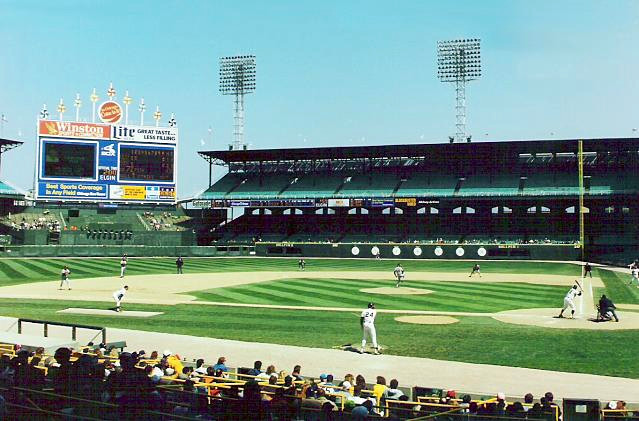|
Italo-disco
Italo disco (variously capitalized, and sometimes hyphenated as Italo-disco) is a music genre which originated in Italy in the late 1970s and was mainly produced in the 1980s. Italo disco evolved from the then-current underground dance, pop, and electronic music, both domestic and foreign (hi-NRG, Euro disco) and developed into a diverse genre. The genre employs electronic drums, drum machines, synthesizers, and occasionally vocoders. It is usually sung in English, and to a lesser extent in Italian and Spanish. The origin of the genre's name is strongly tied to marketing efforts of the ZYX record label, which began licensing and marketing the music outside Italy in 1982.Folklore that ZYX boss Bernhard Mikulski coined the term ''Italo-disco'' in 1983 was long published on Wikipedia, but is unsubstantiated; to date, reliable third-party documentation has not been found to support whether ZYX label boss Mikulski himself named it, or whether ZYX was even the first to publish the t ... [...More Info...] [...Related Items...] OR: [Wikipedia] [Google] [Baidu] |
Eurobeat
Eurobeat refers to two styles of dance music that originated in Europe: one is a British variant of Italian Eurodisco-influencedAng, Ien & Morley, David (2005). "Cultural Studies: Volume 3, Issue 2". ''Routledge''. pgs. 171, 173, 170. . "Eurorecords had to have immediate cross-national appeal, musical simplicity was of the essence- a bouncy beat, just one chorus hook, elementary lyrics. The fun of these records was entirely a matter of sound quality, but once a record was a hit it took on a kind of sleazy, nostalgic charm of its own. It was precisely the brazen utility of these records, in short, that gave them gay disco consumer appeal too. ..Eurodisco also had an obvious element of camp -British club audiences took delight in the very gap between the grand gestures of Eurosingers and the vacuity of their songs." dance-pop, and the other is a hi-NRG-driven form of Italo disco. Both forms were developed in the 1980s. Producer trio Stock Aitken Waterman and pop band Dead or Alive ... [...More Info...] [...Related Items...] OR: [Wikipedia] [Google] [Baidu] |
Disco
Disco is a music genre, genre of dance music and a subculture that emerged in the late 1960s from the United States' urban nightclub, nightlife, particularly in African Americans, African-American, Italian-Americans, Italian-American, LGBTQ community, Gay and Hispanic and Latino Americans, Latino communities. Its sound features four-on-the-floor (music), four-on-the-floor beats, syncopation, syncopated basslines, string sections, brass instrument, brass and horn (musical instrument), horns, electric pianos, synthesizers, and electric rhythm guitars. Discothèques, mostly a French invention, were imported to the United States with the opening of Le Club, a members-only restaurant and nightclub at 416 East 55th Street in Manhattan, by French expatriate Olivier Coquelin, on New Year's Eve 1960. Disco music originated from music popular with African-American culture, African Americans, Hispanic and Latino Americans#Cultural matters, Latino Americans, and Italian Americans#Influe ... [...More Info...] [...Related Items...] OR: [Wikipedia] [Google] [Baidu] |
Bernhard Mikulski
ZYX Music GmbH & Co. KG is a German record label founded in 1971 by Bernhard Mikulski. It is one of the most successful German record labels of the 1980s and 1990s. Until 1992, the label was known as Pop-Import Bernhard Mikulski. The label specialized in disco, early house music, and 1990s techno. Founder Bernhard Mikulski is credited with coining the term "Italo disco" in the 1980s. After Bernhard's death, his wife Christa Mikulski took over in 1997. ZYX Music is headquartered in Merenberg, Germany, and has offices in the US and several European countries. ZYX releases records across a variety of genres, including techno, hip hop, funk, rock, and pop. Notably, ZYX currently holds many rights from some German Krautrock labels, such as Ohr, Pilz, and Kosmische Kuriere, and is also responsible for reissuing many albums from the free jazz/avant-garde label ESP-Disk. Previously, it held the manufacturing license for Fantasy Records in Europe, an arrangement that ceased at the end of ... [...More Info...] [...Related Items...] OR: [Wikipedia] [Google] [Baidu] |
Eurodisco
Eurodisco (also spelled as Euro disco) is a genre of electronic dance music that evolved from disco in the middle 1970s, incorporating elements of pop music, pop and rock music, rock into a disco-like continuous dance atmosphere. Many Eurodisco compositions feature lyrics sung in English, although the singers often share a different First language, mother tongue. Eurodisco derivatives generally include Europop and Eurodance, with the most prominent sub-genres being space disco of the late 1970s and Italo disco of the early 1980s. The genre declined in popularity after 1990 in preference to house and eurodance. History Eurodisco is largely an offshoot of contemporary American music trends going far back to the early times of disco, pop and rock. During the 1960s, Europop hits spread around France, Italy and Germany, because of the French Scopitone (jukebox) and the Italian Cinebox/Coilorama Video-jukebox machines. Another root is the Eurovision Song Contest, especially in the 19 ... [...More Info...] [...Related Items...] OR: [Wikipedia] [Google] [Baidu] |
Vocoder
A vocoder (, a portmanteau of ''vo''ice and en''coder'') is a category of speech coding that analyzes and synthesizes the human voice signal for audio data compression, multiplexing, voice encryption or voice transformation. The vocoder was invented in 1938 by Homer Dudley at Bell Labs as a means of synthesizing human speech. This work was developed into the channel vocoder which was used as a voice codec for telecommunications for speech coding to conserve bandwidth in transmission. By encrypting the control signals, voice transmission can be secured against interception. Its primary use in this fashion is for secure radio communication. The advantage of this method of encryption is that none of the original signal is sent, only envelopes of the bandpass filters. The receiving unit needs to be set up in the same filter configuration to re-synthesize a version of the original signal spectrum. The vocoder has also been used extensively as an electronic musical instrument ... [...More Info...] [...Related Items...] OR: [Wikipedia] [Google] [Baidu] |
Electronic Dance Music
Electronic dance music (EDM), also referred to as dance music or club music, is a broad range of percussive electronic music genres originally made for nightclubs, raves, and List of electronic dance music festivals, festivals. It is generally produced for gapless playback, playback by DJs who create seamless selections of tracks, called a DJ mix, by segueing from one recording to another. EDM producers also perform their music live in a concert or festival setting in what is sometimes called a live PA. Since its inception EDM has expanded to include a wide range of subgenres. In the late 1980s and early 1990s, following the emergence of Rave music, raving, pirate radio, Party crews, underground festivals, and an upsurge of interest in club culture, EDM achieved mainstream popularity in Europe. However, rave culture was not as broadly popular in the United States; it was not typically seen outside of the regional scenes in New York City, Florida, the Midwest, and California. Alt ... [...More Info...] [...Related Items...] OR: [Wikipedia] [Google] [Baidu] |
Disco Demolition Night
Disco Demolition Night was a Major League Baseball (MLB) promotion on Thursday, July 12, 1979, at Comiskey Park in Chicago, Illinois, that ended in a riot. At the climax of the event, a crate filled with disco records was blown up on the field between games of the twi-night doubleheader between the Chicago White Sox and the Detroit Tigers. Many had come to see the explosion rather than the games and rushed onto the field after the detonation. The playing field was so damaged by the explosion and by the rioters that the White Sox were required to forfeit the second game to the Tigers. In the late 1970s, dance-oriented disco was the most popular music genre in the United States, particularly after being featured in hit films such as ''Saturday Night Fever'' (1977). However, disco sparked a major backlash from rock music fans—an opposition prominent enough that the White Sox, seeking to fill seats at Comiskey Park during a lackluster season, engaged Chicago shock jock and a ... [...More Info...] [...Related Items...] OR: [Wikipedia] [Google] [Baidu] |
Electronic Rock
Electronic rock (also known as electro rock and synth rock) is a music genre that involves a combination of rock music and electronic music, featuring instruments typically found within both genres. It originates from the late 1960s when rock bands began incorporating electronic instrumentation into their music. Electronic rock acts usually fuse elements from other music styles, including punk rock, industrial rock, hip hop, techno and synth-pop, which has helped spur subgenres such as indietronica, dance-punk and electroclash. Overview Being a fusion of rock and electronic, electronic rock features instruments found in both genres, such as synthesizers, mellotrons, tape music techniques, electric guitars and drums. Some electronic rock artists, however, often eschew guitar in favor of using technology to emulate a rock sound. Vocals are typically mellow or upbeat, but instrumentals are also common in the genre. A trend of rock bands that incorporated electronic sounds bega ... [...More Info...] [...Related Items...] OR: [Wikipedia] [Google] [Baidu] |
Discoring
''Discoring'' was a music show broadcast by Rai 1 from 1977 to 1989, created by Gianni Boncompagni, aired mainly on Sunday. The program could be considered analogous to the English show ''Top of the Pops''. History The first episode was broadcast February 20, 1977. The formula provided for the exhibition of Italian and international singers and groups (almost always in playback) and a rundown of the list of best selling albums and singles.Aldo Grasso – Massimo Scaglioni, ''Enciclopedia della Televisione'', Garzanti, Milano, 1996 – 2003 Over the years several presenters followed: Gianni Boncompagni (assisted by Antonella Giampaoli and then by Roberta Manfredi), Awana Gana, Claudio Cecchetto, the trio Anna Pettinelli - Isabel Russinova - Emanuela Falcetti, Jocelyn, Kay Rush, Sergio Mancinelli and Carlo Conti. Several opening themes of the show, such as Bus Connection's ''Guapa'' and Baba Yaga's ''Che gatta'' charted and became minor hits at the Italian hit parade. To ... [...More Info...] [...Related Items...] OR: [Wikipedia] [Google] [Baidu] |



